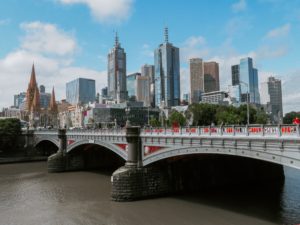So, you’ve just graduated from college and the biggest thing on your mind right now is finding a job in Dubai. Typically, finding a job is a daunting process. But, searching for fresh graduate jobs in Dubai is even more daunting.
There are literally thousands of graduates every year in Dubai who are on the same mission as you. And considering that Dubai has some of the lowest unemployment levels in the world, currently around 0.5%, there is a lot of competition.
If you want to land your dream job, you therefore need to stand out from the crowd and separate yourself from your competition. If you succeed in doing this, you’ll make your job search a success. The problem is that it’s often difficult to know where to start, what to prepare, and where to look for a job.
Luckily, we’re here to help and with this guide will show you what you should prepare, the methods of finding jobs for freshers in Dubai, and how to ace your interview.
What should I prepare before job searching as a Fresh Graduate in Dubai?
Before you start your lookout for fresh graduate jobs in Dubai, there are certain things you shoul prepare. By doing these things you’ll make sure that you’re ready for your search and for an interview when the time comes.
These include:
- Your resume or CV. Think of your resume or CV in the same way as a company thinks about an advertisement. Employers use it to see if you’re eligible and qualified for a job and they also use it to get a deeper understanding of your skills, strengths, and experience. In simple terms, your resume is your first point of contact with the employer and sets the tone for any of the next steps in the process like an interview, screening or on boarding. We’ll deal with some key things that should be in your CV below.
- Portfolio. You may also have a portfolio of projects that will accompany your CV to show potential employers what you’re capable of, and what type of work you’ve done before. Depending on your career path, a portfolio isn’t always necessary or required, but for many positions, an excellent portfolio greatly enhances your success when you’re looking for fresh graduate jobs in Dubai.
- Interview questions. Preparing for all types of interview questions is probably one of the best ways to prevent being caught off guard on the day of the interview. When you know what to answer, you’ll be less likely to panic, and you’ll be able to portray your skills and experience in the best way positive possible. For this reason, it’s necessary to build up some confidence and to build up this confidence, you need to prepare and practice your interview questions.
- Company research. One of the vital aspects of searching for fresh graduate jobs in Dubai is finding companies that you’ll actually enjoy working for. For this reason, you should do research on the companies you intend applying to. This way, you’ll see where there is alignment and where it is not. This could, ultimately, end up saving you a lot of time.
- Knowing your visa eligibility. It’s of no use if you get your CV in order, build an excellent portfolio and prepare your interview questions, but you’re not eligible to work in Dubai. So, you should do some research on your visa eligibility to see which visas you qualify for so that you can apply for those.
- Knowing what salary range you’re looking at. It’s worth your while to look at what salary range you can accept taking into account your budget. It’s no use going through the whole process of submitting a CV and attending interviews only to learn that the pay isn’t enough. However, if you know what your expenses are, you’ll know what salary you can accept, and this will narrow your search.
- Social media. Although not all companies look at candidates’ social media profiles, some do. For this reason, you should polish your social media a bit to make the best you can. This means, if the company looks at your social media, you will be portrayed in the best light and, together with your CV, they’ll be able to see if you’re a good fit for the job and the company.
- Location. In a certain sense this is related to company research, but you’ll have to research where in Dubai you’d want to work. The simple reason for this is that you’ll probably get a place to stay so you’ll have to take into account travel arrangements and other expenses you have to incur to get to your place of work.
What are some Resume (CV) and Portfolio Tips for Fresh Graduate Jobs in Dubai?
You’ll need a resume or CV when job searching for fresh graduate jobs in Dubai. It doesn’t matter whether you’re applying for a job in Dubai online, in person, or through word of mouth. Everyone knows the saying, first impressions count, and with resumes or CV’s, this is even more important. Your resume is the first impression you make with any potential employer.
It has the potential to make you stand out from your competition and portray you in the best light possible, which ultimately improves the chances of you landing your dream job. Often, good candidates miss out on excellent opportunities, not because they don’t have a CV, but rather that they have a CV, but just not a very good one. For this reason, it makes sense to put some preparation into your CV to make it the best possible first impression.
CVs vs Resumes
These terms are often used interchangeably, especially in job applications or where an employer reaches out and asks for one. Although they serve the same purpose, there are some differences between the two. But what exactly is the difference?
The first difference is that people in the UK and Europe often use the term CV while people in the United States refer to the same document as a resume. The differences go further than this, though. Generally, a CV is a longer document that focuses more on showcasing your academic achievements. In contrast, a resume is a short document and it’s designed to show more of your skills and experience.
This means, as a job seeker, you’ll have to figure out what you’re trying to achieve with your CV or resume and what you’re trying to show the prospective employer. So, if you want to showcase more of your academic achievements, you might want to use a CV. It can be especially helpful for new graduates who don’t have enough or much experience yet.
However, if you have more experience and you want to show the prospective employer this experience and your skills instead of your academic achievements, then it may be better to go with a resume.
Irrespective of what format you choose, it’s essential that you include certain key information in the document. This will enable you the employer to get to know you and see if you’re eligible for the job based on your skills, experience, or academic achievements. The prospective employer will also, by looking at your resume, be able to see whether you’re a good fit for the company.
Personal details
Obviously, your name should be on your resume. It’s important that you use the name that is used on all your other documents and formal communications. This means you shouldn’t use names that other people know you by or nicknames that you are called by family or friends.
You should also include your email address to enable the company to contact you if you’re not available on your phone. Here, you should look at using an email which includes your name, if possible, because this makes it look more professional.
In other words, you probably don’t want to use the email address you used in college that has funny nicknames or obscure names in the address. So, no, “[email protected]” isn’t a very good idea. If you don’t have an address with your name in it, you can easily create one using one of the many online services available like Gmail, Outlook, or Yahoo.
The next thing you want to include is your telephone number. This will often be the primary way in which a company will contact you if they want to invite you for an interview or want to discuss anything further. Here, it’s important to keep in mind that you should provide the telephone number with the international dialing code so that prospective employers don’t have to guess what the code is. Also, if you have more than one number, make sure to give the number that you’re most likely to be available on.
You also have to provide your full current address and you have to mention the City and, if in the UAE, the Emirate. Also remember to set out the languages you speak. This is especially important when prospective employers are looking for candidates that speak more than one language fluently. For example, a prospective employer may want a candidate who speaks both English and Spanish. If this is included on your CV, it may just be the ticket that makes you stand out from your competition.
Work experience
After your personal details, you should provide your work experience. This shows the prospective employer that you have some experience in the job you’re applying for. This is often important to employers because they know hiring someone with more experience means they’ll have to give less training during the initial few weeks on the job. This, ultimately, makes it easier for them and it makes you more productive.
Here, it’s important to remember that you don’t need to list all your experience that you’ve ever gained. You can list about the last three recent jobs you had, and this will be enough. The only case where it would help you to add more experience, is if you had jobs where you gained experience that’s more important than the experience you gained in your latest three jobs.
When you set out your experience it’s important to include the company name where you worked and set out your duties and responsibilities you had in the specific job. This will show the employer what specific areas you’re experienced in and where they can use you in the best way in the company.
Now, if you’re fresh from college and you don’t have much experience, you can, in a certain sense, substitute experience with some projects you’ve worked on during your studies. This can, for instance, mean that if you studied computer science you might list a few projects you’ve built for yourself during your studies. Likewise, if you’re applying for a marketing position, there may be some marketing mock-ups or projects that you completed during your studies which you can then use as your experience in your resume. You should also add any internships you attended during your studies, because these give your resume a boost and makes it stand out from the competition.
Education
When it comes to education, it’s important to write down your most recent education. You should, for instance, when you’re fresh out of college include your college degree and your secondary school education.
When listing your education, it’s important to list the full name of the institution and the dates which you attended the school, while also providing any other relevant information that you might think is important relating to your education.
Skills
When you list your skills, it’s important to list both hard and soft skills. The difference between the two is that hard skills are often obtained during your studies or through work experience while soft skills are something that’s not necessarily taught. For example, as a computer science graduate your hard skills could include a programming language or a specific type of software you’re capable of using. A soft skill, however, is a skill like teamwork or communication that’s not part of your college education but something you learn from experience.
Another important thing to remember when it comes to skills is that you need to be honest with your skills because companies will often be able to tell if you weren’t. When they do, this will immediately disqualify you from the position.
Hobbies and Interests
Although this isn’t necessarily required, it’s important to include interests relevant to the job you’re applying for. It also gives the recruiter a more rounded picture of you so that they’ll get to know you and see if you are a perfect fit for the company. These interests can also provide a talking point during the interview if they are unique. For example, if you have an interest is unique, interviewers can ask you questions about it and you’ll be able to ask questions based on your interest.
For this reason, it’s always better to be very specific in your interests. You should, for example, say what type of books you like to read rather than just saying that you like to read.
References
When searching for fresh graduate jobs in Dubai, you probably don’t have much employment references. These references are still important, though, because they enable the company to do some research on your character and if you’d be a good fit for the company. If you’re fresh out of college, it might make sense to include some lecturers or people you worked with during an internship as references.
One thing you should keep in mind, though, is that you don’t necessarily want to distribute people’s personal details to companies who might not even hire you. So, you might consider making the references available on request of the prospective employer, and when they ask, you’ll then provide the specific names and contact details.

What are some common methods When Searching For Fresh Graduate Jobs in Dubai?
Now that you’ve prepared an excellent resume or CV, you’ll have to start looking for fresh graduate jobs in Dubai. Here, there are several methods you can use for finding fresher jobs in Dubai.
Internships
One solution to finding a job is possibly to do an internship at a company. You should keep in mind, though, that you won’t be paid as much when doing an internship, but the valuable experience you’ll gain during it, can only serve you well for the rest of your career and job search.
Fortunately, Dubai has many internships available that you can choose from doing. During these internships you’ll gain valuable job experience, you’ll get exposure to a variety of different tasks and departments within a company, you’ll create a professional network, and you’ll be better prepared for future jobs.
Some of the other benefits of doing an internship include:
- Being able to explore a career path. You’ll be able to see whether a chosen field is a good fit for you. If it isn’t, you’ll be able to switch early on while not wasting time further.
- Giving yourself an edge in the job market because if you apply for later jobs along with other recent graduates, your experience during the internship will make you stand out.
- Developing and refining your skills because you’ll see what you’re good at and where you’ll be able to improve. You’ll also be able to test out specific techniques that you learned in the classroom, you’ll be in a safe environment where companies expect mistakes, and you’ll learn how to fix them.
- Transitioning into a job when the company where you intern makes you a job offer. This is, obviously, dependent on how you perform during your internship, but if you perform well, there’s a good possibility that the company will offer you a permanent job.
- Get a great reference letter if you perform well on the internship. This means you’ll be able to use this recommendation letter when applying for future jobs.
- Receiving mentorship from more senior and experienced colleagues in your field. This is invaluable and it’s quite possible that the mentorship may last even after your internship.
You can read more about internships here.
Walk-in Interviews
Walk-in interviews or open interviews are quite common in Dubai. Companies routinely hold them as on-site hiring events to enable them to interview lots of potential candidates and sift out the best ones.
It’s also quite possible that companies will hold these events to fill more than one position from the same line of applicants. This means if you go to a walk-in interview, you have a good chance of securing a job even if there are many other applicants.
It’s important to note that walk-in interviews differ starkly from the standard practices of traditional scheduled interviews, and are often thought quicker than a traditional interview. With less time, you only have a few precious minutes to make a good impression on the employer and convince them to take you further in the process. If they like you, they may ask you to stay to discuss the job further and schedule a second interview.
You can read more about walk-in interviews here.
Recruitment agencies
The job market in Dubai is highly competitive and the rapidly evolving market offers some of the highest per capita income levels in the world. Because of this, there’s often steep competition for fresh graduate jobs in Dubai.
As a result, it may be worth your while to consider using a recruitment agency to find your next job for you.
In fact, these recruitment agencies are an excellent way to find a job in Dubai and they help match applicants with available positions. But one of the main benefits of using a recruitment agency is that they often work with prospective employers to simplify the job hunting process and quickly fill open roles by finding the best candidates.
You should keep in mind, though, that although many of these recruitment agencies can be helpful, there are many frauds and horror stories of recruitment agencies that exploited vulnerable populations. The first thing that should make the alarm bells go off is if the recruitment agency asks you a fee to help you with your job search in in Dubai. This is then probably a fraud and you’ll lose your money.
Some of the benefits of using a recruitment agency include that:
- You’ll build up local connections, which means you’ll always know about new openings for fresh graduate jobs in Dubai.
- They work closely with prospective employers, so they can move you to the front of the line of qualified applicants who don’t necessarily use recruitment agents.
- They’ll help you with your job application and tailor your resume to make it appropriate for the Dubai market and for the specific job.
- Because they’re paid to fill positions, they do their best to get you hired. Also, because their commission is often tied to your starting salary, they’ll fight for the best possible offer.
- Best of all, they can save you a lot of time and energy which can be essential in your bid to apply for the best positions first.
You can read more about recruitment agencies here.
Job portals and platforms
Looking for fresh graduate jobs in Dubai can be challenging. There’s a multitude of job sites and platforms available, making it difficult to know which ones are best to use.
This is even more complicated when you consider that some of the job portals in Dubai cater to certain job scopes and types. So, knowing these can help your job search be more specific and fruitful, and you won’t waste time on a job portal that doesn’t focus on the types of jobs you want to apply for.
For example, job seekers looking specifically for non-executive job roles have five times more specific searches on GrabJobs than they would if they searched on LinkedIn, since the latter is more dedicated towards executive level roles.
Job portals also offer you a cost-effective solution that often automates the sourcing, screening and interviewing of candidates. This means that they’ll be able to automatically generate profiles for you and you’ll be able to apply for new jobs as soon as possible.
You can read more about job portals and grab jobs here.
Networking Events
There is a saying that, “it’s not what you know but who you know”. And when it comes to job searching for fresh graduate jobs in Dubai, this is often very true. By attending networking events, you’ll get to know people in the industry which can open up job opportunities when these people work at companies which are hiring.
Another benefit is that these events are often free and that you’ll learn about the local culture and the way of working, which is a very valuable soft skill in the job market.
You can read more about networking events here.

How should I prepare for job interviews as a fresh Graduate in Dubai?
So, you sent out your CV and you’ve been invited to an interview. What now?
Your interview is probably one of the most important stages of your job search. To stand out from the competition, you’ll have to prepare properly and convince your interviewer that you’re the right candidate for the job.
To prepare, there are some obvious things you could do like researching about the company because you’ll show an interest and you’ll be able to talk confidently about what the company does and who they are.
Another thing to remember is that you’ll have to be dressed properly for the interview. This doesn’t necessarily mean that you have to put on a suit or exquisite address for the interview. You should, however, consider the culture of the company in deciding what to wear. Etiquette is also very important, so you’ll have to do a bit of research on the right etiquette and keep to that during the interview.
Although the aforesaid are all important, a large part of your preparation will be to focus on answering the questions that will be asked. Now, you can rehearse these questions with a friend or family member, or you can rehearse in a mirror.
Either way, you’ll have to be prepared when the questions are asked. And remember, during an interview it’s not only the interviewer who will ask questions, and you’ll have the opportunity to do so too. So, with that in mind, let’s look at some of the most popular interview questions that you or the interviewer can ask.
What are the most commonly asked interview questions?
- Tell us about yourself? It is often the first question that will be asked and it’s there to break the ice. This doesn’t mean you should give a simple answer, though. To make a good impression you could describe where you’re from, but also your qualifications, your skills and emphasizing the skills that are relevant to the job.
- What have your achievements been to date? Here you can use one or two achievements that have been work related and emphasize them. You could also elaborate on the skills that were necessary to accomplish those achievements. If you’re a fresher, you could refer to achievements you had in college like, for instance, where you completed certain projects as a student.
- What are your strengths? This question is almost a certainty. So, you have to prepare for it well, as it will show the interviewer what your strengths are and how they, as a company, can use it. Here, it’s important to highlight the skills and competencies which you think are the most relevant to the job, but also keep in mind that you shouldn’t boast about yourself in the process.
- What are your weaknesses? It’s often a difficult question to answer because people don’t always want to admit that they have weaknesses. The biggest mistake you can make, however, is to say that you have none. This is simply not realistic. Here, you have two options. You can use a weakness, like a lack of experience on your part, that’s not vital for the job. You could also describe a personal weakness that can, in some instances, be considered a strength and the steps you’ve taken to combat it. For example, you could say that you are a slower worker because of your attention to detail.
- Why have you applied for this particular job? Here, the interviewer is looking for evidence that you’d be a good fit for the job and if your skills and experience fits in with the job position. This question also serves to show that the position fits in with your long-term goals. To answer this question, give a broad overview of your experience, your skills, and your passion for the job and the company. In simple terms, you should see this question as your personal sales pitch to the company.
- What are your goals for the future? With this question the interviewer wants to know about your sense of purpose and what drives you in your career. If you can answer this question well, it can make you a very compelling applicant. So, focus on emphasizing how you want to learn, grow, and add value to the job and the company.
- What do you like to do in your spare time? Here, the interviewer is trying to figure out whether you’d be a good fit for the company. So, to answer it, mention interests and hobbies that align with the role on offer, but which also demonstrates your inquisitiveness and collaborative abilities.
- What are your salary expectations for the job? This is one of the biggest questions to answer during an interview and it doesn’t necessarily relate to money. In part, the answer to this question shows the interviewer how you value your work. Your answer, however, also shows the interviewer how confident you are in your skills and abilities. So, after you’ve done proper market research, and considering your experience level and your skills, you can answer the question based on that. If you answer too low for the position, it shows you lack confidence in yourself. The other side of the coin, however, is that, if you answer too high, it might border on being overconfident.
What questions should I ask my interviewer?
As we said earlier, it’s not only the interviewer who will be asking the questions and you’ll have the opportunity to ask questions too.
Some of the questions you could ask include:
- What skills and experience would be an ideal candidate have? It’s an excellent question to ask to find out exactly what the company is looking for and if that aligns with your skills and experience.
- What does a day’s work look like? The answer to this question will give you an idea of the company’s culture and the day-to-day running of the company.
- What have previous employees done to be successful in this position? This can give you a great idea of the people who did this job before and what they have done. In this way you gauge the company’s expectations of the position and if you have the right skills for the job.
- What new skills can I learn? Here, the answer can give you an excellent idea of what the job is about, but also shows the interviewer that you’re eager to learn and grow in the position.
- Where do you see the company going in the next five years? If staying at the company is part of your future plans, it makes sense to know what their plans are for the future.
- What comes next in the process? This question shows that you’re eager and engaged in the process, and that you really want to be part of the company.
- Do you have any hesitations about my qualifications? Here, you show the interviewer that you’re confident in what you can do and that you can contribute to the company.
- What do you love about working here? It’s a difficult question to ask during an interview, but it shows the interviewer that you value their opinion, and it gives you some idea of what there is to like about the company.
Expected Salary and Salary Negotiation Tips for Fresh Graduate Jobs in Dubai
It’s vital that you should do research on the average industry salary ranges in advance before you go to an interview.
This will give you a great idea of what companies are paying for similar jobs and what you can expect to earn. Apart from allowing you to budget properly, it also prevents a situation where, during an interview, to give a salary expectation that is too high or too low. This could translate in you appearing either overconfident or not confident at all.
In addition, if the prospective employer gives you an indicative salary during the interview, you’ll be able to see if your salary expectations align with that of the company.
Considering this, here are some salaries you can expect to earn across several different industries.
Profession
Average Salary in UAE
Accounting
14,000 AED
Finance
45,600 AED
Sales
37,400 AED
Business Development
35,800 AED
Legal
11,200 AED
Customer Service
29,700 AED
Human Resources
32,400 AED
Construction
35,300 AED
Hospitality
39,300 AED
Tourism
13,000 AED
IT
35,000 AED
Graphic Design
12,800 AED
Engineering
20,100 AED
You should also keep in mind that, just like you prepare for your interview, you should prepare for a salary negotiation.
It’s a critical skill that you need to master if you want to effectively negotiate your salary during an interview paragraph some tips to negotiate your salary include:
- Knowing what you’re worth is to the company. Here, you’ll have to figure out how much your skills and experience are worth to the employer. In other words, the question to be asked is what value you bring to the company.
- Avoiding accepting the first offer. It’s obvious that you’re excited and nervous during your interview and you’ll be eager to get it done with. Despite this, don’t just accept the first salary offer. Ask the employer if you could provide a response within the next day or two, and during this time sit down with the job offer and taking into account your value to the company decide whether it’s a fair offer.
- Making the first offer. You should wait for the prospective employer to make their offer. So, unless the interviewer asks you explicitly what your expected salary is don’t provide a number. The key is to wait for the interviewer to present what they think is a suitable salary, taking into account your experience and skills.
- Remembering to negotiate additional perks. Keep in mind that a salary negotiation doesn’t stop with the monthly amount you will be paid. You also have to negotiate the additional benefits you’ll receive as part of the job offer. These can, for instance, include health benefits sign on bonus paid vacation or the option to work remotely.
Considering all of the above, you’ll be able to build a strong case for what you’re worth and what the company should pay you. It’ll also enable you to deal with the possibility of resistance from the interviewer. Ultimately, you’ll be able to negotiate your salary effectively.
Conclusion
Searching for fresh graduate jobs in Dubai can be a harrowing experience. There are so many things you need to consider and lookout for when searching for a job as a fresher. There’s also polishing your resume, planning for an interview and salary negotiations that you should consider. Sometimes it feels like it all could get too much.
Hopefully, this ultimate guide to fresh graduate jobs in Dubai was helpful in showing you how you can apply, get your resume in tip-top shape, and ace your interview in order to land that job you’ve been dreaming about while at college.
If you want to know more about fresh graduate jobs in Dubai, or about job searching at other tips in general, visit out platform today!






